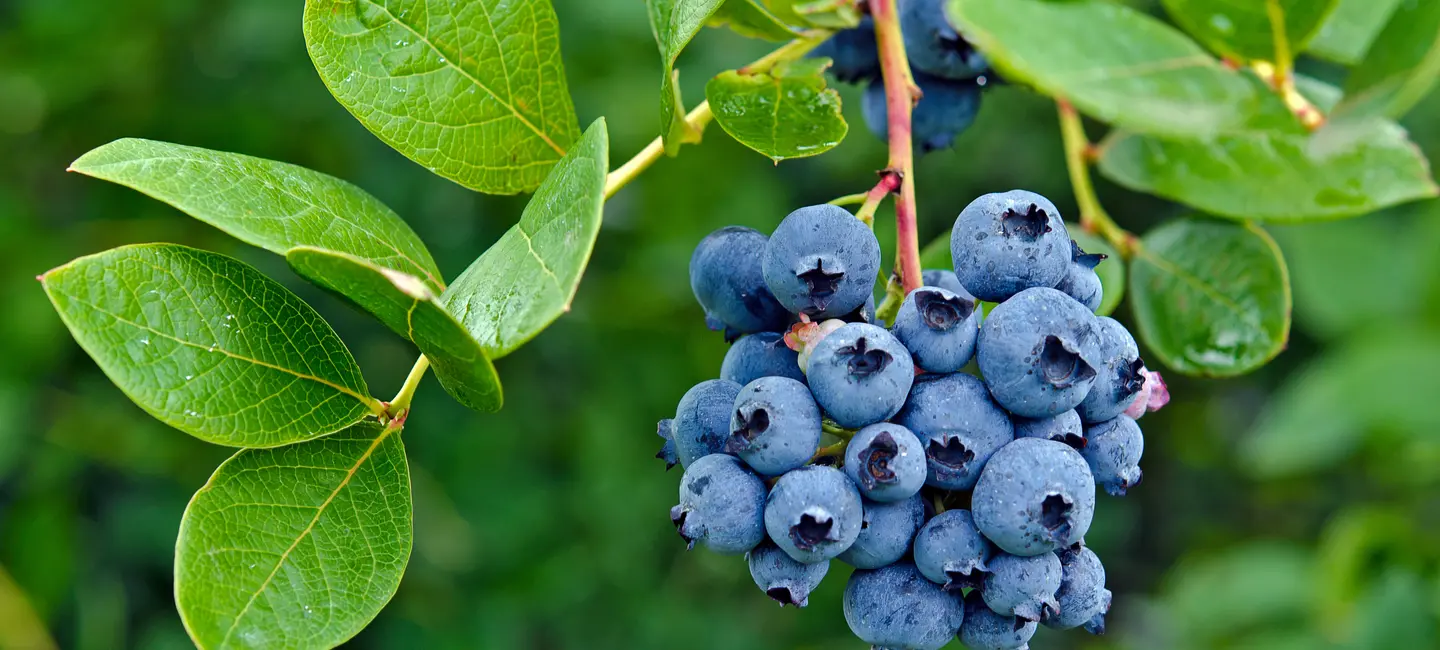
Blueberries are edible fruits from the Vaccinium angustifolium plant. Blueberry is a common food and is also sometimes used as medicine.
Blueberries are high in fiber, which can help with normal digestion. They also contain vitamin C, other antioxidants, and chemicals that might reduce swelling and destroy cancer cells.
People use blueberry for aging, memory and thinking skills, high blood pressure, athletic performance, diabetes, and many other conditions, but there is no good scientific evidence to support these uses.
Don't confuse blueberry with bilberry. They are related but they are not the same. In countries outside of the US, the name blueberry is used to refer to the plant that is often called bilberry in the US.
Is It Effective?
NatMed Pro rates effectiveness based on scientific evidence according to the following scale: Effective, Likely Effective, Possibly Effective, Possibly Ineffective, Likely Ineffective, Ineffective, and Insufficient Evidence to Rate.
- High blood pressure. Eating freeze-dried blueberries or taking blueberry powder by mouth doesn't lower blood pressure in people with high blood pressure or other heart disease risk factors.
There is interest in using blueberry for a number of other purposes, but there isn't enough reliable information to say whether it might be helpful.
Is it Safe?
When taken by mouth: Blueberry whole fruit, juice, and powders are commonly consumed in foods. Drinks made with freeze-dried blueberries might cause constipation, diarrhea, nausea, or vomiting in some people.
There isn't enough reliable information to know if taking blueberry leaf is safe or what the side effects might be.
When applied to the skin: There isn't enough reliable information to know if blueberry is safe or what the side effects might be.
Special Precautions & Warnings:
Pregnancy and breast-feeding: Blueberry fruit is commonly consumed in foods. But there isn't enough reliable information to know if blueberry is safe to use in larger amounts as medicine when pregnant or breast-feeding. Stay on the safe side and stick to food amounts.
Glucose-6-phosphate dehydrogenase (G6PD) deficiency: G6PD is a genetic disorder. People with this disorder have problems breaking down some chemicals in food and drugs. One or more of these chemicals are found in blueberries. If you have G6PD, check with your healthcare provider before eating blueberries.
Surgery: Blueberry fruit and leaf might affect blood glucose levels and could interfere with blood sugar control during and after surgery.
Buspirone (BuSpar)
Interaction Rating=Minor Be watchful with this combination.
Blueberry juice might decrease how fast the body gets rid of buspirone. But this is not likely to be a major concern.
Flurbiprofen (Ansaid, others)
Interaction Rating=Minor Be watchful with this combination.
Blueberry juice might decrease how fast the body gets rid of flurbiprofen. But this is not likely to be a major concern.
Medications for diabetes (Antidiabetes drugs)
Interaction Rating=Minor Be watchful with this combination.
Blueberry fruit or leaf might lower blood sugar levels. Taking blueberry along with diabetes medications might cause blood sugar to drop too low. Monitor your blood sugar closely.
Herbs and supplements that might lower blood sugar: Blueberry fruit or leaf might lower blood sugar. Taking it with other supplements with similar effects might lower blood sugar too much. Examples of supplements with this effect include aloe, bitter melon, cassia cinnamon, chromium, and prickly pear cactus.
Drinking milk along with blueberries might lower the potential health benefits of blueberries. Consuming blueberries 1-2 hours before or after drinking milk might prevent this interaction.
Blueberries are commonly consumed in foods. As medicine, freeze-dried blueberries have most often been used by adults in doses of 22-50 grams by mouth daily for up to 16 weeks. Blueberry extracts and blueberry leaf extracts have also been used. Speak with a healthcare provider to find out what type of product and dose might be best for a specific condition.
Arándano, Bleuet, Bleuet des Champs, Bleuet des Montagnes, Bleuets, Blueberries, Highbush Blueberry, Hillside Blueberry, Lowbush Blueberry, Myrtille, Rabbiteye Blueberry, Rubel, Tifblue, Vaccinium altomontanum, Vaccinium amoenum, Vaccinium angustifolium, Vaccinium ashei, Vaccinium brittonii, Vaccinium constablaei, Vaccinium corymbosum, Vaccinium lamarckii, Vaccinium pallidum, Vaccinium pensylvanicum, Vaccinium vacillans, Vaccinium virgatum.
Information on this website is for informational use only and is not intended to replace professional medical advice, diagnosis, or treatment. While evidence-based, it is not guaranteed to be error-free and is not intended to meet any particular user’s needs or requirements or to cover all possible uses, safety concerns, interactions, outcomes, or adverse effects. Always check with your doctor or other medical professional before making healthcare decisions (including taking any medication) and do not delay or disregard seeking medical advice or treatment based on any information displayed on this website.
© TRC Healthcare 2024. All rights reserved. Use and/or distribution is permitted only pursuant to a valid license or other permission from TRC Healthcare.
